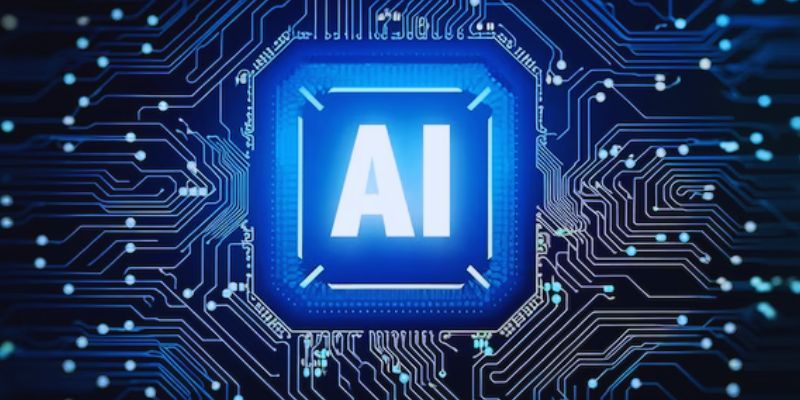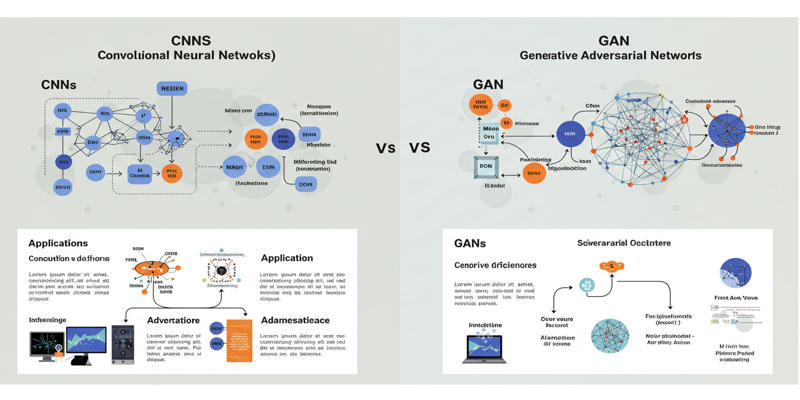Machine learning and AI have transformed the tech sector. As more businesses embrace these technologies, the need for trained experts in artificial intelligence and machine learning keeps rising. Many excellent free online courses are accessible regardless of your experience level or desire to improve.
Learning artificial intelligence and machine learning in 2025 will never be more difficult, given so many free courses available on many platforms. The best free ML and AI courses accessible in 2025 will be emphasized in this article. These courses will equip you with the information required for a career in AI and ML, regardless of your experience or desire to explore specialist fields such as deep learning or reinforcement learning.

These are some of the greatest free courses in 2025 to study artificial intelligence and machine learning:
Andrew Ng's "Machine Learning" course at Stanford University is among the most often utilized and highly advised for everyone interested in machine learning. It thoroughly introduces several ML techniques, including neural networks and unsupervised and supervised learning. The course is ideal for novices and provides useful knowledge applicable to current challenges.
MIT provides a free course called "Introduction to Machine Learning with Python" on edX, focused on teaching machine learning via Python. The course covers the fundamental libraries, including NumPy, sci-kit-learn, and others applied in machine learning. Working hands-on with Python code clarifies for students important machine learning algorithms. Certificates are provided for a cost even if audits are free.
The "Deep Learning Specialization" on Coursera is a great option for anybody learning more about artificial intelligence. Designed by Andrew Ng, these five courses provide a thorough study of deep learning covering key subjects such as neural networks, convolutional networks, and sequence models. The emphasis of the specialization is on both useful coding applications and deep learning theory.
Designed for anyone wishing to learn about artificial intelligence but without delving into the complexities of coding, "AI For Everyone" is a Coursera course. It addresses the social effects of artificial intelligence, its uses in several sectors, and the potential consequences of AI technology. Andrew Ng's course is perfect for beginners who are curious about artificial intelligence but lack a programming background.

TensorFlow is among the most often used systems for creating artificial intelligence models. Beginning users looking to use this potent technology will find Coursera's "Introduction to TensorFlow for Artificial Intelligence" ideal. The course addresses deep learning methods, from fundamental ideas like neural networks to more advanced subjects like convolutional neural networks (CNNs) and sequence models.
Harvard's CS50 provides a free, thorough course called "Introduction to Artificial Intelligence with Python, " perfect for those wishing to delve into both artificial intelligence and programming." The courses ' topics include search algorithms, knowledge representation, neural networks, and machine learning. It blends theory with useful Python coding challenges and is perfect for people who wish for a strong basis in artificial intelligence ideas.
Fast.ai's "Practical Deep Learning for Coders" is a singular and interactive deep learning course designed for people who would rather learn by doing. Perfect for students who wish to enter deep learning fast, the course stresses leveraging the latest deep learning techniques to create practical applications. Although the course is beginner-friendly, you must know fundamental Python and machine learning ideas.
Aimed at making artificial intelligence understandable to everyone, the University of Helsinki provides a free beginning course titled "Elements of AI." The course addresses the fundamental ideas of artificial intelligence and how it affects society. It is intended for beginners with no programming knowledge. The self-paced course lets students grasp artificial intelligence principles, including how they are applied in several fields.
If you would like to study machine learning via R. In that case, Udemy has a free course called "Data Science and Machine Learning Bootcamp with R." Key machine learning subjects, including supervised and unsupervised, regression, classification, and deep learning, are covered. The course is beginners ' friend, focusing on utilizing R for data science and machine learning. Although admission is free, individuals wishing to pay for it can obtain a certificate.
Google provides a free "Machine Learning Crash Course" utilizing TensorFlow to go over the foundations of machine learning. Interactive coding challenges, movies, and useful instructions throughout the course let novices start with machine learning effortlessly. It covers everything from linear regression to deep learning and is a superb introduction to ML.
Udacity presents a free Python course on artificial intelligence programming. Teaching the programming sides of artificial intelligence, including Python, NumPy, and other libraries, this course is oriented. It clarifies the fundamental programming instruments applied in constructing machine learning models and artificial intelligence systems for students.
Based on Stuart Russell's textbook, "Artificial Intelligence: A Modern Approach" is free online and available at Stanford. Search algorithms, game theory, and reasoning are just a few of the wide range of AI subjects this extensive course addresses. It is perfect for students wishing to go deeply into AI theory. However, it does call for a solid background in mathematics and computer science.
Thanks to so many free courses online, understanding artificial intelligence and machine learning has become simpler and more reasonably priced. There is something helpful for you regardless of your level of knowledge—just beginning or already knowing a bit. These courses provide information on artificial intelligence, machine learning, and real skills. From elite colleges like Stanford and Harvard to large corporations like Google, excellent training is free of cost. You can advance your profession and learn at your own pace.

Open reasoning systems and Cosmos world models have contributed to robotic progress and autonomous system advancement.

The AI Labyrinth feature with Firewall for AI offers protection against data leakages, prompt injection attacks, and unauthorized generative AI model usage.

How logic and reasoning in AI serve as the foundation for smarter, more consistent decision-making in modern artificial intelligence systems

remove duplicate records, verification is a critical step, SSIS provides visual tools

With TensorFlow Extended (TFX), learn sentiment analysis using this comprehensive guide for creating and implementing models

Find the benefits and challenges of outsourcing AI development, including tips on choosing the best partner and outsourcing areas

Learn the nine biggest benefits of using AI in retail, from personalized experiences to cost savings and smarter decision-making

Discover how Microsoft Drasi enables real-time change detection and automation across systems using low-code tools.

Know the essential distinctions that separate CNNs from GANs as two dominant artificial neural network designs

Business professionals can now access information about Oracle’s AI Agent Studio integrated within Fusion Suite.

Explore if AI can be an inventor, how copyright laws apply, and what the future holds for AI-generated creations worldwide

AI in Cybersecurity is changing the way businesses handle threat detection. Discover how advanced AI systems prevent cyberattacks with faster and smarter protection